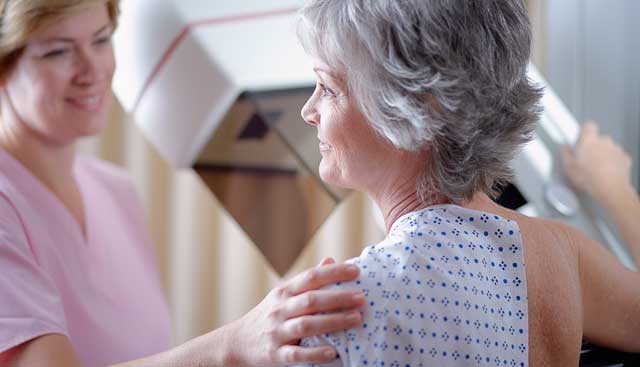Cancer research is a rapidly expanding and evolving field, but it’s not without its established ideas. Here are 10 ways you can reduce your risk of cancer significantly that you can start today.
Cancer has had such an enormous economic, societal, and emotional impact on the world that many have come to think there’s nothing in their power to help prevent a cancer diagnosis. Fortunately, they’re absolutely wrong. Here are 10 ways to reduce your risk of cancer significantly that you can start today.
Don’t Smoke and Don’t Chew Tobacco

Tobacco products as a whole have been shown as an enormous risk factor for a variety of different cancers including lung, blood, mouth, nose, throat, esophagus, larynx, trachea, stomach, pancreas, liver, bladder, colon/rectum, cervix, and kidney. By quitting use of tobacco products, you can expect your risk of a number of different cancer diagnoses to be cut by 50% in just five years. In fact, the World Health Organization estimates that about 20% of global cancer deaths are directly caused by tobacco use.
Maintain a Healthy Weight
Studies indicate that excessive body fat leads to an increased risk of at least 11 different cancers including esophagus, pancreas, colon/rectum, endometrium, kidney, breast, gallbladder, ovaries, liver, prostate, and stomach. For people who are overweight (BMI between 25 and 29.9) or obese (BMI>30), weight loss results in a significant reduction in cancer risks and cancer fatality both through better eating and an increase in exercise or through bariatric surgery.
Get Recommended Cancer Screenings

Following your doctor’s recommended cancer screening schedule is one of the best ways to ensure that any signs of cancerous growths are identified, tested, and treated early, when modern cancer treatments have the most success. Tests like mammograms, PAP smears, colonoscopies, and LDCT exams are all highly recommended by the U.S. Preventative Services Task Force. Not all cancer screening tests are advisable or applicable for all people, however, so be sure to consult with your doctor.
Perform Regular Self-Examinations
In addition to recommended cancer screenings, self-examination techniques have now been developed to identify signs of skin cancer and breast cancer. Other forms of self-examination are widely recognized but have not been as definitively established as reliable means of determining cancer growth, most notably testicular self-exams. That said, recognized, reliable self-exams like those mentioned above can serve as an excellent tool for early-identification and thereby early treatment.
Reduce the Amount of Processed Meat and Red Meat You Eat

In a 2015 report from the International Agency for Research on Cancer, processed meat (meat which has salted, cured, fermented, smoked, etc.) was determined to be carcinogenic to humans, while red meat (including beef, veal, pork, lamb, etc.) was determined to be probably carcinogenic to humans. In a Q&A on these findings, the IARC stated that data from 10 separate studies estimated that “every 50 gram portion of processed meat eaten daily increases the risk of colorectal cancer by about 18%”. They went on to clarify that “eating meat has known health benefits” and that instead of simply stopping meat consumption a decrease in processed and red meat consumption could bring about a decrease in your risk of certain cancer diagnoses.
Increase the Amount of Fruits and Vegetables You Eat
There’s a growing wealth of research into the impact which increased fruit and vegetable consumption can have as a measure of cancer prevention, particularly focusing the value of a diet high in fiber and on cruciferous vegetables like broccoli, cauliflower, and kale. There is, however, a question regarding the conclusiveness of specific links between these plant-based foods and a reduction in specific cancer risks caused by the difficulties involved in designing those studies without having other factors impact the outcomes. As a result, the scientific community as a whole does not confirm fruit and vegetable consumption as a cancer preventative measure. Instead, they advise the public at large of the well-understood health benefits of these foods and state that a link may be drawn between increased fruit and vegetable consumption and reduced risk of developing cancer.
Limit Alcohol Consumption

A meta-analysis of over 200 studies recently determined that there was a strong positive correlation between alcohol consumption and risk of developing cancer of the mouth, pharynx, larynx, esophagus, and liver with further investigations examining the connection between alcohol consumption and cancers of the colon/rectum, stomach, pancreas, prostate, and uterus. According to guidelines established in the ODPHPs 2015-2020 Dietary Guidelines for Americans, “if alcohol is consumed, it should be in moderation – up to one drink per day for women and up to two drinks per day for men”.
Protect Yourself from the Sun
Skin cancer is the most common form of cancer in the U.S. and most of the cases of skin cancer which are diagnoses could be prevented. By taking precautions like applying sunscreen that’s 30 SPF or higher, wearing protective clothing when directly under the sun’s rays, and limiting activities like natural tanning, frequenting tanning beds, and getting sunburns, you can protect yourself from a number of different forms of damage which unchecked UV radiation can cause to humans. That said, due to a lack of research confirmation, the NIH has not officially acknowledged sunscreen and similar protective measures as effectively lowering the risk of melanoma skin cancer or nonmelanoma skin cancer. Still, skin experts recommend these precautions to anyone who will engage in regular, lengthy sun exposure.
Stay Physically Active

Regular physical activity has been cited as beneficial to the health and wellness of humans in countless ways, not least of which is reducing the risk of a variety of cancer diagnoses including colon cancer (decreased by 30-40%), breast cancer (decreased by 20-80% depending on the study), endometrial cancer (decreased by 20-40%), and lung cancer (decreased by 20%). According to the latest guidelines for recommended physical activity, adults 18-64 years old should strive to do at least 2 hours and 30 minutes of moderate-intensity aerobic activities every week. That said, many studies investigating the impact physical activity has on cancer incidence suggest that the more health benefits can be attained by more activity.
Get Vaccinated
The vaccine debate has already been discussed on this blog and will, in all likelihood, be addressed again in the future. That said, there are two different forms of cancer vaccines currently in usage which have been approved by agencies like the NIH and the FDA. Vaccines for HPV and Hepatitis B have been shown to prevent these viral infections from spreading, thereby stopping the development of the various cancers they lead to, including liver cancer, cervical cancer, and various genital cancers. In addition to these preventative cancer vaccines, there are a number of cancer treatment vaccines currently in use and many more now in development.


